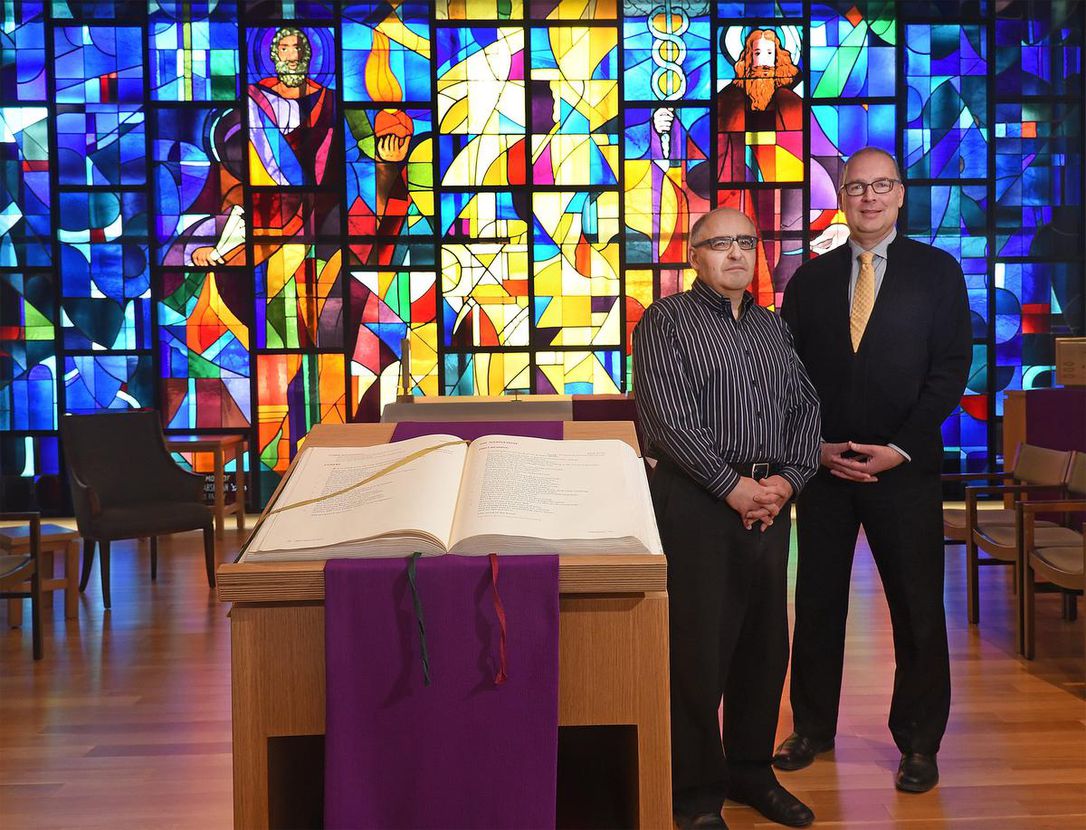York Region Mental Health Centre Speaks out Months after Explosive Report on Abusive Priests
By Lisa Queen
Of 300-plus priests who had sexually abused boys and girls in that state over decades, the grand jury identified seven predators sent to Southdown for treatment rather than facing criminal charges. A Southdown spokesperson declined to discuss the revelation then. However, on Feb. 1, the centre welcomed new president and chief psychologist, Father Stephan Kappler, who believes Southdown missed an opportunity to respond to the accusations and explain its mission to the community. The priest and Dr. Eran Talitman, a psychologist with Southdown for 20 years, sat down for a far-ranging interview, including accusations the centre “laundered” offending priests before the church reassigned them to unsuspecting parishes and concerns abusive clergy were tested out in local churches before going on to unknowing congregations. Both men said they are upset thinking the community might fear Southdown and its clients. Only a “very small percentage” of clients are referred to Southdown for sexual misconduct, with the majority treated for mental health issues such as depression, substance abuse and struggles with interpersonal relationships, Talitman said. Although the centre treats people of the cloth, mostly Catholic but also from other Christian denominations, it is an accredited organization independent from the church, Kappler said. Licensed staff are mandated to report disclosures of recent, current or threats of future sexual assault to the Children’s Aid Society and police, he said. That means clients at Southdown for sexual assault have already had their offences reported and adjudicated, Kappler said. While the church once turned a blind eye to sexual abuse by clergy, a “tectonic” change in culture means it now follows reporting protocols and “99 per cent” of offending priests are now removed from ministry, Kappler said. “That time period when people may have looked the other way is over,” he said, although victims would clearly disagree the church has adequately responded to the sex abuse crisis. Kappler knows the church was forced to change following media reports of widespread sexual assaults by clergy. “The other thing that has changed is, I would say, there is zero tolerance,” he added. “As a priest, it makes you sick this is happening in the priesthood by somebody who was entrusted to care for a child. Clearly, it makes your stomach turn. It makes you angry, it makes me angry. We (Southdown) are trying to be part of the solution to that, not the problem.” Sex offenders are assessed on a number of psychological factors such as whether they take responsibility for the abuse they inflicted, said Talitman, adding they are often stunted in their psychological, emotional and sexual development. A letter from Southdown assessing priests’ likelihood to reoffend is sent to clients’ diocese and church leadership, he said. Talitman acknowledged the church likely ignored past warnings of predator priests. “That’s the early days, definitely the early days. They’ve come a long way to take it much more seriously,” he said. “But you’re right, if bishops or leadership ignored that, that’s on them. I hate to say that but that’s really on them. You can look at it many different ways. For me, a comfort is that is not happening today. That situation, that scenario just doesn’t occur today because the parameters have changed. There are no loop holes.” Talitman understands people are “very shocked, hurt, angry and feeling sickened” about priests sexually abusing children. But he stressed Southdown and its clients are not a danger to the community because he has a duty to report to authorities a client he suspects will harm the public. “What the public needs to understand is if we have anybody here who we think is at risk to harm anybody in the public, they stay on the grounds, they don’t go out,” he said. A grandfather who lives across the road, Paul Forbes, said the centre and its clients have been “good neighbours” who generally stick to themselves. In the wake of a historic Vatican sex abuse summit in February, Kappler shares critics’ concerns Pope Francis failed to adopt concrete solutions to the crisis. But he’s pleased the church continues to take strides forward in addressing “disgusting” sexual abuse. “It’s painful but it has to be talked about. Because we’re only as unhealthy as our secrets,” he said.
|
.
Any original material on these pages is copyright © BishopAccountability.org 2004. Reproduce freely with attribution.
